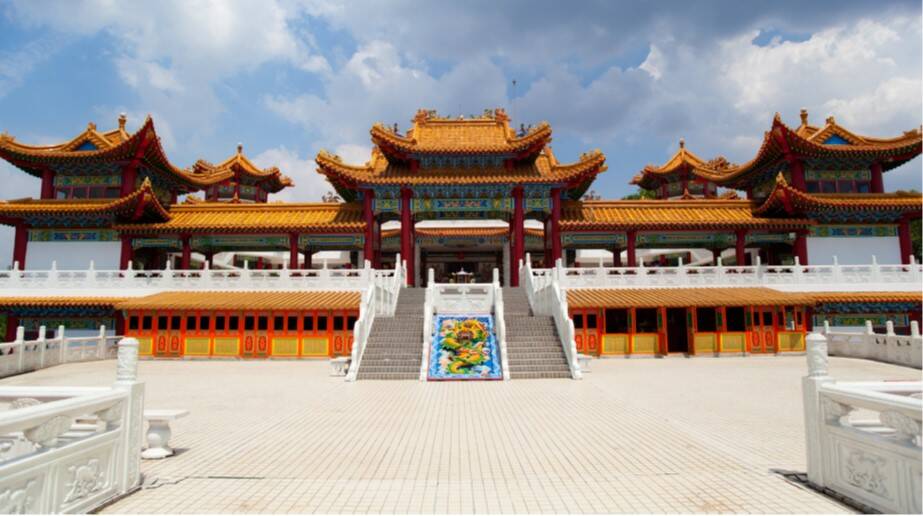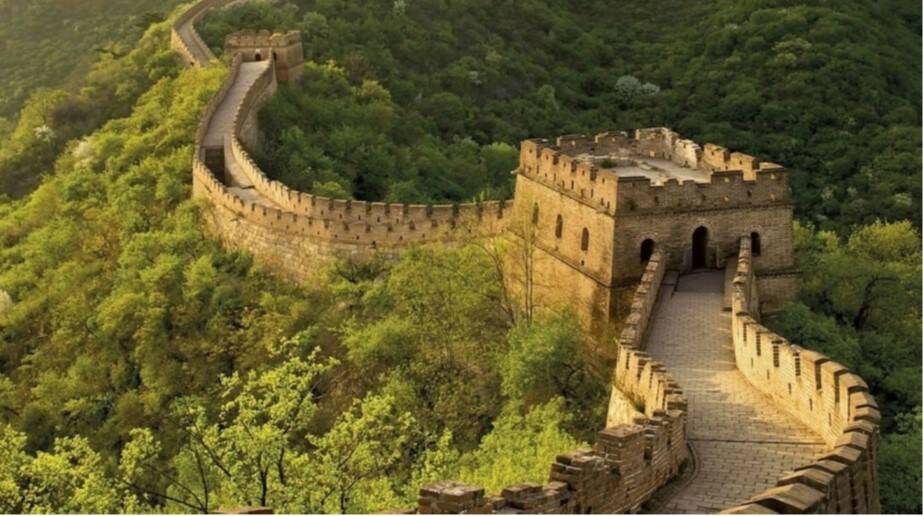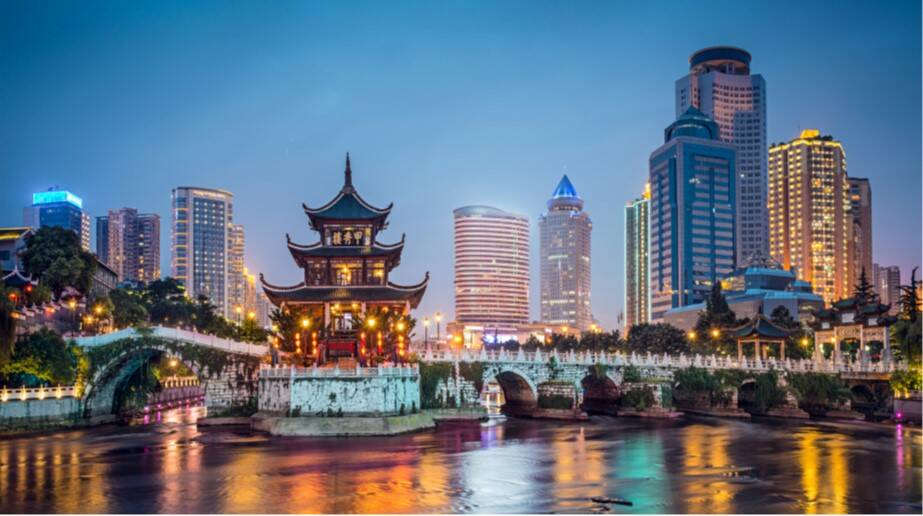
Travel to China: Your Cultural Odyssey in the Middle Kingdom
Welcome to China’s vast and diverse land, a country that mesmerizes with its contrasting landscapes and multifaceted cultural tapestry. Picture yourself walking through the bustling streets of Shanghai, a city that seamlessly blends modern skyscrapers with historic neighborhoods. Imagine embarking on a tranquil Li River cruise in Guilin, surrounded by breathtaking karst mountains that seem like something out of a painting. Brace yourself for an immersive journey into China’s rich history, steeped in ancient traditions, while embracing its rapid technological advancements.
Preparing for Your Journey to China
As with traveling anywhere internationally, you need to make special preparations for your Middle Kingdom adventure. Travel to China has particular visa requirements and important health-related considerations. Let’s look into these more in-depth.
China’s Visa Requirements and Travel Documentation
Navigating China’s visa process is an essential step in planning your trip. Understanding the nuances between various visa types – whether it’s a tourist (L), business (M), or work (Z) visa – is crucial. Each type comes with specific requirements and application procedures. Your passport, application form, recent photos, and a detailed itinerary are typically mandatory. However, staying updated on the ever-changing visa policies and processing times is equally vital, as they can significantly impact your travel plans.
Health and Safety Considerations
Taking care of your health before and during your trip is imperative. Beyond routine vaccinations like Hepatitis A and Typhoid, it’s advisable to consult with a healthcare professional for personalized advice on additional vaccinations and health precautions. Pay attention to the air quality in major urban centers and take precautions, such as wearing masks in heavily polluted areas. Also, be cautious about water safety and opt for bottled water to avoid potential health risks from untreated sources. You can also consider getting travel insurance that covers international travel emergencies to cover unexpected events.
Cultural Etiquette and Local Customs
Delving into Chinese culture means respecting local customs and social norms. Understanding the Mianzi (face) concept, which represents dignity and prestige, is crucial in social interactions. Mastering the art of using chopsticks is not just about etiquette; it’s a respectful gesture towards local traditions. Moreover, being mindful of gift-giving customs. Sensitivity to topics like politics or contentious historical events is advisable to maintain harmonious conversations with the local people.
Travel Advisories
Staying informed about the latest travel advisories ensures a smooth and safe travel experience. Regularly checking credible sources like the U.S. Department of State’s China Travel Advisory page keeps you updated on any security concerns, health advisories, or travel restrictions that might affect your plans.
When Is the Best Time to Visit China?
You might be more of a winter bird or warm-weather adventurer, so carefully consider the time of year you will best enjoy all China has to experience.
China’s Diverse Climate
China’s vast geographical expanse means diverse climatic conditions across regions. Spring and autumn offer pleasant weather for exploring Beijing and Shanghai. However, winter in southern regions like Yunnan can be milder, making it an ideal time to visit. Traditional festivals such as the Spring Festival and the Mid-Autumn Festival are perfect for immersing yourself in cultural experiences and enjoying grand celebrations. For the Spring Festival (also known as the Chinese New Year), the dates vary according to the Chinese lunar calendar but generally fall on a day between Jan 21 and Feb 20 in the Gregorian calendar. In mainland China, the Mid-Autumn Festival holiday is three days long. The 2024 Mid-Autumn holiday falls on Sept 17, so the entire celebration is from Sept 15 to Sept 17. Both events provide unique cultural experiences but anticipate increased crowds and travel congestion during these festive periods.

Top Cities and Regions to Explore in China
China offers many city scenes, from bustling metropolises to more villages. Here are some of the most well-known destinations you should add to your itinerary.
Beijing
Beijing, the heart of China’s historical legacy, boasts a treasure trove of landmarks. Beyond the iconic Forbidden City and Tiananmen Square, delve into the lesser-explored gems like the Temple of Heaven, a masterpiece of ancient Chinese architecture and symbolism. Embrace the city’s contemporary vibrancy by exploring its burgeoning art scene housed in contemporary galleries and artist districts. The 2008 Olympics profoundly impacted Beijing, which is evident in modern architectural marvels like the National Stadium, commonly known as the Bird’s Nest.
Shanghai
Shanghai’s allure is its contrasting elements, blending old-world charm and futuristic innovation. Stroll along the Bund, witnessing the architectural legacy of the city’s colonial past juxtaposed against the futuristic skyline of Pudong’s towering skyscrapers. Immerse yourself in the vibrant street life and local markets, offering an authentic taste of Shanghai’s cultural and culinary diversity. From luxury shopping districts to traditional alleyways, Shanghai’s multifaceted personality gives visitors ample chances for education and entertainment.
Xi’an
Xi’an, an ancient city with historical significance as the eastern terminus of the Silk Road, invites exploration beyond the famous Terracotta Warriors. Venture into the Muslim Quarter, a bustling hub that blends Chinese and Islamic cultures, offering a sensory delight with its vibrant markets and aromatic street food stalls. Take the time to venture through the ancient city walls, a testament to Xi’an’s rich past and enduring heritage.
Guilin and Yangshuo
Escape to Guilin’s picturesque landscapes with stunning karst mountains and crystal-clear rivers. The Li River cruise from Guilin to Yangshuo unveils breathtaking scenery from a traditional Chinese painting. Engage in bamboo rafting or cycling through Yangshuo’s rural villages, where time seems to stand still, providing a glimpse into authentic rural Chinese life.
Outdoor Activities and Chinese Cultural Experiences
China also has some challenging treks and picturesque walks for the outdoorsy types and opportunities to take in its arts and music scene. These activities allow you to see the natural wonders of China and learn more about its rich history.
The Great Wall and Hiking
Adventures Beyond the well-known sections like Badaling, venture to less crowded parts of the Great Wall, such as Jinshanling or Mutianyu, for a more authentic experience. Explore the rugged terrain of the Great Wall and hike through sections like Simatai or Jiankou for a deeper connection with this architectural marvel. Consider challenging treks in areas like Tiger Leaping Gorge, where nature’s grandeur awaits more seasoned hikers.
Cultural Immersion
Participate in traditional Chinese painting workshops conducted by local artists, gaining insight into this ancient art form’s techniques and cultural significance. Immerse yourself in the labyrinthine hutongs of Beijing, interacting with families to understand their way of life and the traditions passed down through generations. Attend performances of Peking Opera or traditional Chinese music concerts, where captivating storytelling and melodies transport you through China’s longstanding cultural heritage.
Culinary Journeys
Embark on a palate-pleasing adventure exploring China’s diverse regional cuisines. Delight your taste buds with Cantonese dim sum in Guangzhou, fiery Sichuan hotpots in Chengdu, or flavorsome Hunan cuisine in Changsha. Enroll in cooking classes hosted by local chefs, learning the intricate art of Chinese culinary traditions firsthand. Immerse yourself in bustling food markets, where the aromas and tastes of authentic Chinese cuisine await.

Tips for Traveling in China
China’s culture has specific nuances regarding public transportation, payment systems, and other aspects that travelers from Western countries may not be familiar with. Let’s look at some of them.
Currency and Payments
China’s transition to a cashless society is evident with the prevalence of mobile payment systems like WeChat Pay and Alipay. Familiarize yourself with these platforms to make transactions seamless during your trip. Connect your bank cards or set up payment methods to access various services, from shopping to transportation and dining.
Transportation Tips
China’s extensive high-speed rail network offers a convenient and efficient way to travel between major cities. Ensure train tickets are booked in advance, especially during peak seasons, and arrive at stations early to navigate security and ticketing processes smoothly. Take advantage of bike-sharing services in cities like Beijing and Shanghai, offering an eco-friendly and cost-effective way to explore urban areas.
Language and Communication
People in some parts of China do not speak English widely, so learning Mandarin phrases can significantly enhance your travel experience. Introductory words for greetings, directions, and ordering food can go a long way in bridging communication gaps. Consider downloading translation apps with offline capabilities like Apple’s Translate or Google Translate for real-time assistance in navigating language barriers. Additionally, be mindful of accessing the internet using VPN services to bypass restrictions and access essential platforms during your stay.
Secure Your Trip to China with Aegis
As you embark on your journey, remember that travel can be unpredictable. Flight cancellations, lost luggage, or unexpected medical emergencies can disrupt your plans. Aegis offers comprehensive travel insurance plans tailored to suit your specific needs. Whether you’re an adventure seeker, a family on vacation, or a traveler exploring extensively, Aegis provides coverage options like trip cancellation, medical expenses, and baggage loss. Explore and compare plans to ensure a worry-free and secure travel experience.
Prepare to immerse yourself in the wonders of China, where ancient traditions blend seamlessly with modern advancements, promising an unforgettable journey filled with cultural discoveries and remarkable experiences.




